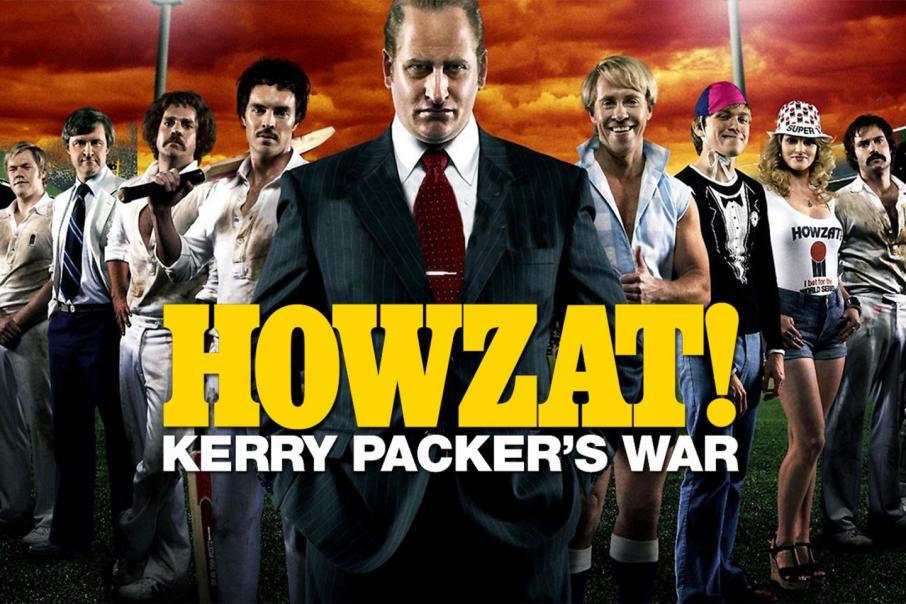The AFL may be (almost) a national competition, but clubs outside Victoria are still missing out.


Last week’s announcement that the AFL grand final would be played in Perth was, at least from a personal point of view, perfectly timed.
The previous night, I started re-watching Howzat! Kerry Packer’s War, the stylised true story of the birth of World Series Cricket in 1977.
And hearing the AFL announcement so soon after being reminded of Packer’s epic battle with the Australian Cricket Board – which started over TV rights but ultimately changed the sport for the better – was a salient reminder that powerful sporting organisations sometimes need to be challenged.
The catch is that the person or organisation mounting the challenge needs to have means, both political and financial.
It made me wonder whether there is anyone with the clout required to go to war with the AFL.
After all, for the baby boomers and many members of generation X, this is the only time they will ever be able to see the AFL grand final in Perth.
COVID-19 permitting, it will return to the MCG from next year until 2059. I’m one of the younger gen Xers and I’ll be 82 by the time that contract expires.
Nobody could convince me that’s a fair deal.
Yes, I understand the AFL is a business and the contract that ties the grand final to the MCG for four decades was done on a commercial basis.
As a result, the AFL secured millions in funding to upgrade Etihad Stadium and Ikon Park (Carlton’s headquarters), which will become the home of the AFLW. The league will also receive freehold title to $75 million worth of land for its new headquarters, extra money for the MCG-based clubs, and various other sweeteners.
The non-Victorian clubs received nothing (directly) from the deal.
And those eight interstate clubs will all feel aggrieved that the AFL traded their chances of grand final parity for 30 pieces of Victorian silver.
I wonder what Kerry Packer (my third cousin, by the way, but we never met) would have to say about that, if he had any interest in Aussie rules.
To be clear, I have no doubt he would not have cared one bit about the inequity of it; but he would certainly have identified that such inequity would provide someone with deep pockets an opportunity to start a rebel competition.
So, imagine such a rebel league, akin to Packer’s World Series Cricket.
There could be seven teams in Victoria, two in WA, two in SA, one each in NSW and Queensland, and one in Tasmania.
Perhaps they would all be new teams and the players would have to be enticed away from the AFL clubs. More likely, existing clubs would have to be convinced to join the new competition, as happened with rugby league in the 1990s.
The new competition’s awards could bear the names of footy heroes from across the nation, rather than just names from the VFL.
And the grand final could be held anywhere.
Sure, fewer tickets could be sold to an event at a smaller stadium, but the ticket price could be increased, or state governments could subsidise that cost, especially given analysts estimate the AFL grand final brings $125 million of economic benefit to Victoria each year.
The impact on footy fans wouldn’t be any different to the impact on non-Victorian footy fans now.
If you want to go the grand final, you would either wait until it’s played in your home state or, if you have the means, you find a way to get to wherever it’s being played.
Tickets would be just as easy (or difficult) to obtain. Yes, the MCG can hold 100,000 people, but Melbourne Cricket Club members and AFL members get a guaranteed allocation of between 29,000 and 49,000 seats each year.
At best, that leaves only 71,000 seats for other footy fans.
Optus Stadium, meanwhile, was designed to be easily expanded to hold 70,000 people, which means it would be able to accommodate the same number of non-MCC and AFL members as the MCG.
The VFL has usurped our footy heritage, consigned the WAFL and SANFL clubs to irrelevance on the national stage, paid lip service to the interstate clubs when they sought parity, and continues to make decisions in the best interests of Victorian clubs and supporters.
It’s about time another Kerry Packer stepped forward.






